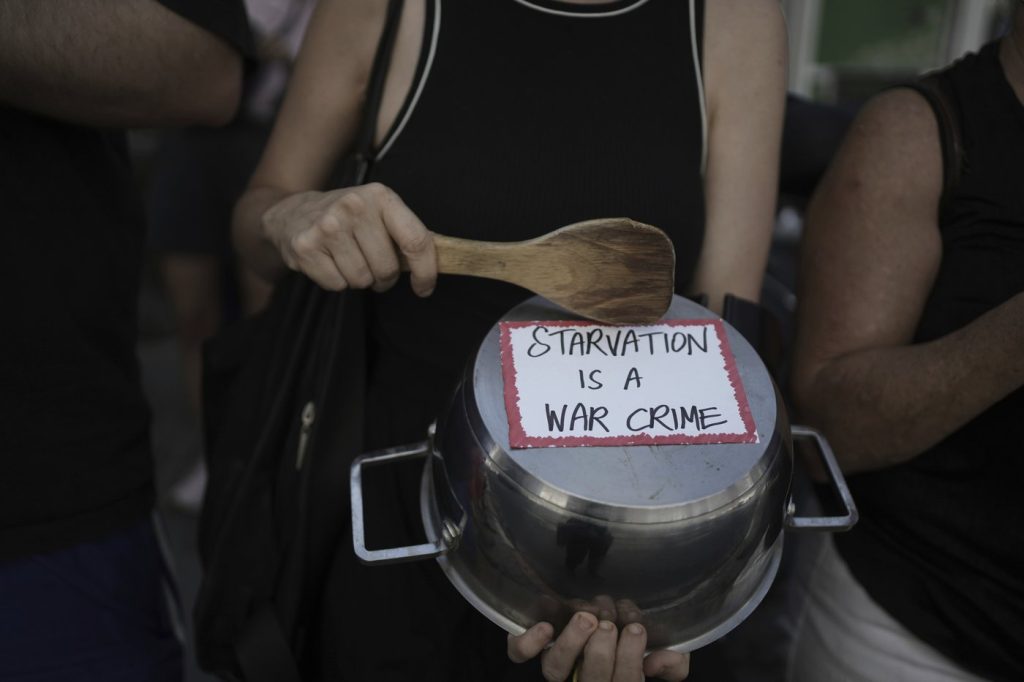TEL AVIV, Israel (AP) — The ongoing war in the Gaza Strip has begun to feature different narratives in Israeli media recently. Historically, Israeli television has focused predominantly on local narratives, emphasizing stories of Israeli heroism, the pain of families of hostages, and the losses of Israeli soldiers. However, this trend is slowly changing as media outlets begin to shed light on the humanitarian crisis in Gaza.
In response to growing global outrage and protests regarding the conflict, some Israeli news stations are featuring disturbing images of malnourished Palestinian children, along with stories that highlight the challenges faced by everyday Palestinians. This shift in coverage comes amidst rising calls for a reevaluation of Israel's military strategy in Gaza. Eran Amsalem, a communications professor at Hebrew University, notes that these discussions are propelled not only by concern for Gaza but also by Israeli introspection regarding the war's objectives.
Since the devastating Hamas attack on October 7, 2023, where around 1,200 individuals, mostly civilians, were killed and 251 were taken hostage, the narrative has largely centered around the fallout of that event. Many Israelis perceived this moment as a catastrophic incident akin to a second 9/11. Therefore, local media initially focused on rallying national sentiment, while international reports quickly turned to the humanitarian crises emerging in Gaza.
Raviv Drucker, an Israeli news anchor, observes that for the majority of the conflict, the suffering in Gaza has been underreported and depicted primarily through an Israeli lens aimed at showcasing the military's effectiveness against Hamas. The Israeli government has restricted international journalists from covering Gaza, leading to allegations regarding the safety of reporters and high casualties among media personnel, as noted by the Committee to Protect Journalists.
Despite an uptick in coverage of Gaza's suffering, journalists who highlight the humanitarian aspects often face significant backlash. Notable news anchor Yonit Levi, known for her composed reporting style, suggested a societal moral failure in addressing the humanitarian disaster. Consequently, she faced insults and accusations of sympathizing with Hamas from right-wing commentators.
The death toll in Gaza has surpassed 64,000 according to the Hamas-run Gaza Health Ministry, a source disputed by Israeli authorities who have not provided alternative figures. This lack of consensus on casualty numbers adds a layer of complexity to media narratives. Additionally, individuals such as Zvi Yehezkeli from i24 TV propagate viewpoints that disregard Palestinian innocents, asserting a need for increased aggression towards Gazans.
In recent weeks, there have been signs of gradual change in media coverage, with an increase in more comprehensive reporting concerning the starvation crisis exacerbated by a prolonged ban on humanitarian aid by Israel. Interviews with Palestinians living in Gaza have started to appear, albeit cautiously altered to protect their identities from potential retaliation.
Organizations like Haaretz have carved out a niche by providing critical reporting about Palestinians both during and prior to the ongoing war. Nir Hasson from Haaretz suggests that this newfound openness about Palestinian suffering reflects a more mature Israeli public, capable of understanding the complexities of the situation, even if mainstream media may be overly self-censoring.










